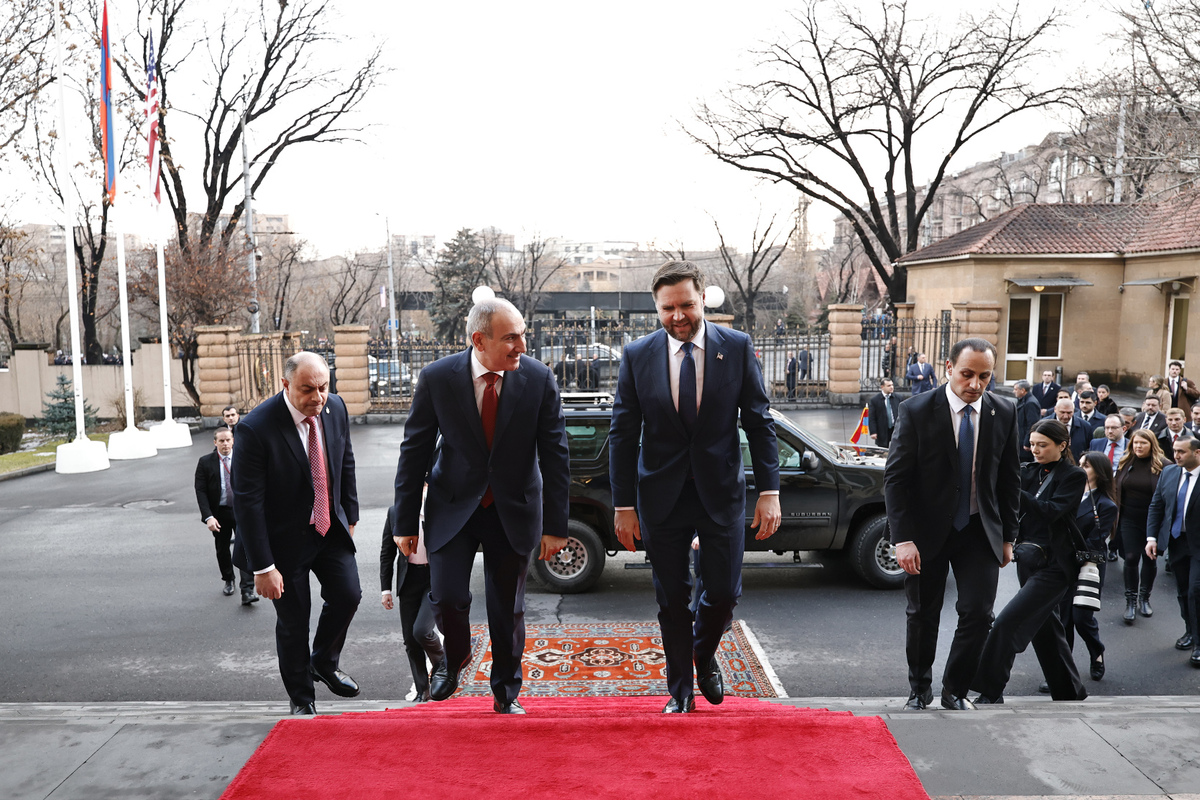Abkhazia headed for election runoff
Photo: Ibragim Chkadua
Abkhazia is heading back to the polls for a run-off vote to elect a new parliament on Sunday, March 26.
Two thirds of all the parliament seats are up for grabs, too many to allow one to predict results of the election with any degree of certainty. Competition is close, and passions are running very high, with the result that the media coverage of the campaign has sounded more like a crime wrap-up over the past week.
First, someone set fire to a car owned by Batal Aiba, a candidate running in a Sukhum constituency. Then, a car belonging to another candidate, Kakha Pertaia who is competing to represent the Gal District in the parliament, was shot at. Supreme court judge Temur Shonia’s car was the next to be targeted by arsonists. While no evidence has been found to directly link these incidents to the forthcoming vote, they’ve fitted into the broader picture of election tensions perfectly well.
President Raul Khajimba has responded to the incidents by calling on the public “not to fall for the provocations”.
Only twelve out of the Abkhaz parliament’s 35 seats were taken in the first round of the election on March 12, leaving 22 single-member constituencies unclaimed. The fight had been unsparing, as even some of the most prominent candidates had lost their bids.
The political figures who failed to make it into the parliament are: former PM Sergei Shamba, speaker of the current parliament Valery Bganba, ex foreign minister Vyacheslav Chirikba and ex finance minister Beslan Kubrava.
As these “stars” fell, another effectively shot up – Alexander Ankvab, once president of Abkhazia and now its main opposition player, got himself elected.
Having the opposition leader in the parliament, what is it to the government?
Ankvab has been “trending” for the past two and a half years, that is ever since he resigned as president late in May of 2014, succumbing to pressure from the opposition that was rallying outside his presidential palace at the time, and fled to Moscow.
A chance for Ankvab to reset his political career, his membership in the parliament is also likely to become an invigorating, refreshing experience for the legislature itself.
It’s hardly disputable that with someone like Alexander Ankvab as its member the parliament will have a better chance of attracting the public eye than without him. Consequently, it might give new impetus to the relations between the parliament on the one hand and the executive power and president on the other.
Possible scenarios for how the situation might further unfold are many, I think. Ankvab may end up playing a destructive role in Abkhazia, or else it may be a constructive role. It will depend on him, on how he goes about building his political career.
Notably, Ankvab’s political comeback is a challenge for the Abkhaz opposition almost as much as it is a challenge for the government.
Having its own leader in the parliament, what is it to the opposition?
An opposition leader must be someone who can offer a promise of political continuity. Ankvab won’t be able to run for president in the next presidential election in 2019, because he turns 65 on December 26 this year (the maximum age to become president of Abkhazia).
And even should an early presidential election be called this year, Ankvab wouldn’t be able to participate, after having lived in Moscow for the past two-plus years. This leaves him with either having to nurture a successor or attempting to change the government system to hand the key decision-making powers over to, say, the prime minister, a post for which the constitution sets no age limits.
The second round race: who runs and what should we expect?
However, a change of government system is unlikely, no matter what the outcome of the second round will be.
Rivalries – within both the government and opposition – are too strong for a consensus to be reached that would lead to a replacement of the current presidential system of government. They can’t agree who to bet on in an election, let alone act single-mindedly when far more important things are at stake.
Indeed, neither the government nor the opposition has been able to consolidate around a single candidate.
As a result, two high-profile candidates from Raul Khajimba’s ‘camp’ will be racing against each other in one of the constituencies in Sukhum – former vice prime minister Shamil Ardzinba and head of a parliament committee Valery Agrba.
In the Atar constituency, opposition leader Aslan Bzhania who won 35 percent of the vote in the latest presidential election will be pitted out against another opposition figure Temur Kvitsinia, a protégé of Alexander Ankvab.
Not a single political force is going to enjoy a “controlling interest” in the new parliament. Which means the new legislature will be more representative and effective than the old one.
For once there is a chance for us to shed the street-savvy ways of dealing with political issues and start solving them civilly, in the parliament.
JAMnews poll in Abkhazia: what do people expect of the new parliament, and what is it they didn’t like about the old one?
Do Azerbaijani school students need Islam in the curriculum?




















